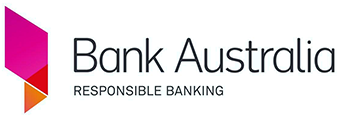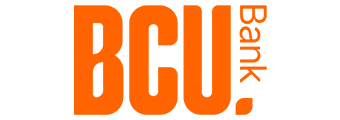Fact Checked
| Lender | Home Loan | Interest Rate | Comparison Rate* | Monthly Repayment | Repayment type | Rate Type | Offset | Redraw | Ongoing Fees | Upfront Fees | Max LVR | Lump Sum Repayment | Additional Repayments | Split Loan Option | Tags | Features | Link | Compare | Promoted Product | Disclosure |
|---|---|---|---|---|---|---|---|---|---|---|---|---|---|---|---|---|---|---|---|---|
5.79% p.a. | 5.83% p.a. | $2,931 | Principal & Interest | Variable | $0 | $530 | 90% |
| Promoted | Disclosure | ||||||||||
5.74% p.a. | 5.65% p.a. | $2,915 | Principal & Interest | Variable | $0 | $0 | 80% | Apply in minutes |
| Promoted | Disclosure | |||||||||
5.84% p.a. | 5.86% p.a. | $2,947 | Principal & Interest | Variable | $0 | $250 | 60% |
| Promoted | Disclosure | ||||||||||
5.89% p.a. | 5.93% p.a. | $2,962 | Principal & Interest | Variable | $0 | $530 | 90% |
| Promoted | Disclosure | ||||||||||
5.74% p.a. | 5.74% p.a. | $2,915 | Principal & Interest | Variable | $null | $360 | 60% | No application, ongoing or monthly fees | Disclosure | |||||||||||
5.74% p.a. | 5.75% p.a. | $2,915 | Principal & Interest | Variable | $0 | $0 | 90% | Disclosure | ||||||||||||
5.89% p.a. | 6.14% p.a. | $2,962 | Principal & Interest | Variable | $248 | $350 | 60% |
| Disclosure | |||||||||||
5.94% p.a. | 5.96% p.a. | $2,978 | Principal & Interest | Variable | $0 | $350 | 80% | Disclosure | ||||||||||||
5.89% p.a. | 5.91% p.a. | $2,962 | Principal & Interest | Variable | $0 | $250 | 80% | Disclosure | ||||||||||||
5.88% p.a. | 5.93% p.a. | $2,959 | Principal & Interest | Variable | $0 | $745 | 70% | |||||||||||||
5.93% p.a. | 5.96% p.a. | $2,975 | Principal & Interest | Variable | $0 | $845 | 60% | |||||||||||||
5.99% p.a. | 6.34% p.a. | $2,995 | Principal & Interest | Variable | $350 | $210 | 80% | |||||||||||||
6.00% p.a. | 6.36% p.a. | $2,998 | Principal & Interest | Variable | $375 | $0 | 80% | |||||||||||||
6.14% p.a. | 6.29% p.a. | $3,043 | Principal & Interest | Variable | $10 | $450 | 90% | |||||||||||||
6.19% p.a. | 6.20% p.a. | $3,059 | Principal & Interest | Variable | $0 | $0 | 97% | |||||||||||||
6.19% p.a. | 6.19% p.a. | $3,059 | Principal & Interest | Variable | $0 | $160 | 70% | |||||||||||||
6.54% p.a. | 6.63% p.a. | $3,174 | Principal & Interest | Variable | $8 | $350 | 70% | |||||||||||||
5.74% p.a. | 6.19% p.a. | $2,915 | Principal & Interest | Variable | $0 | $530 | 90% |
| Disclosure |
Frequently Asked Questions
You might consider refinancing your mortgage for various reasons. Perhaps you're eyeing a lower interest rate on your home loan, or maybe you're not quite clicking with your current lender. Other times, it could be about bringing your debts together under one roof, accessing the equity within your bricks and mortar to fund a renovation, or even financing a major purchase, like a new car, at a more friendly interest rate. Refinancing can be a path to making these goals more attainable.
Many home loan lenders set a borrowing cap at 95% of a property's value, which essentially means you need to have at least 5% equity in your home to refinance. When thinking about refinancing, a handy tip is to aim for a loan to value ratio (LVR) of at least 20%. This can help you sidestep the extra cost of Lenders Mortgage Insurance (LMI), making your journey to a more suitable mortgage a bit smoother.
To get a handle on your potential monthly repayments and figure out how much you could save by refinancing, you can use Savings.com.au's Mortgage Switching Calculator. It crunches the numbers for you, giving a clearer picture of the financial benefits of making the switch.
Many loans have a maximum LVR of 95%, which means you can't borrow any more than 95% of the value of your home. If you want to refinance, this means you must have at least 5% equity in your property. When it comes to refinancing, a general rule of thumb is to have 20% equity in the property to avoid having to pay for LMI.
In short, refinancing a home loan could impact your credit score. That's because the process of refinancing a mortgage is effectively the same as shutting down one lending facility and opening another – an action that will be reflected on your credit report. Further, a credit inquiry – which a lender will likely conduct prior to approving a borrower's application – also leaves a mark, albeit temporary, on a person's credit score. However, the potentially negative impact of refinancing on a person's credit score is typically negligible compared to the positive impact of refinancing on their financial position. Make sure to consider your own personal circumstances carefully to decide whether refinancing is the right course of action for you.
Refinancing a mortgage can be costly, incorporating discharge fees, set up fees, valuation fees, and potentially break fees, just to name a few. However, these costs might be recouped over time if you're refinancing to a loan with a lower interest rate or fewer fees. Its important to calculate whether the savings realised from refinancing outweigh the costs of doing so.
In most cases, you don't need a new deposit to refinance your home loan. Refinancing is more about reshuffling the existing loan based on your home's current value and the amount you still owe. The equity you've built up in your home typically takes the place of a deposit in this scenario. However, specific requirements can vary depending on your lender and your financial situation, so it's always a good idea to check with them directly for the nitty-gritty details. Additionally, if your equity is less than 20% of the value of your property, you might need to pay Lenders Mortgage Insurance (LMI) in order to refinance.






















